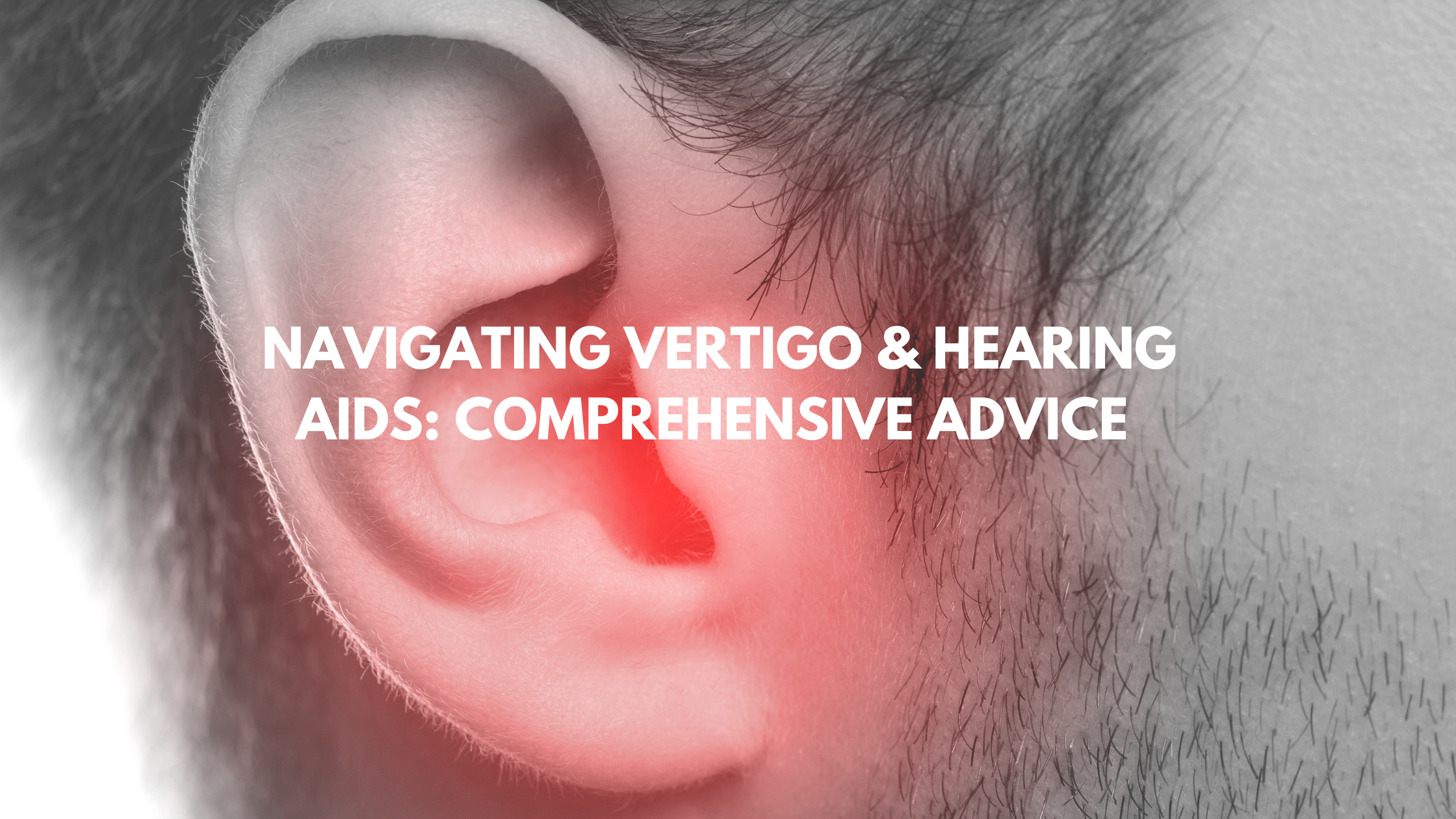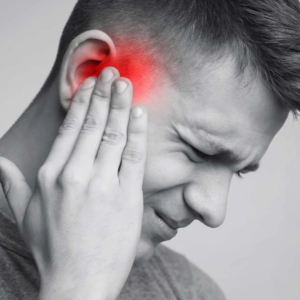

Introduction
Vertigo is a disorder that affects millions of individuals globally and results in a spinning or lightheaded feeling. Although balance and spatial orientation are frequently the predominant symptoms of vertigo, its effects can also affect other areas of everyday living, such as hearing. It’s important for people who use hearing aids to understand how vertigo can affect how well they work. In this blog post, we’ll discuss the connection between vertigo and hearing aids and practical management techniques for each.

Recognizing vertigo
The inner ear is affected by the complicated and frequently disabling disorder known as vertigo, which interferes with the vestibular system, which is in charge of balance and spatial orientation. It is typified by a spinning, lightheaded, and unsteady feeling, frequently coupled with symptoms including nausea, vomiting, and blurred or double vision. Numerous underlying conditions can induce vertigo, such as vestibular neuritis, Ménière’s disease, benign paroxysmal positional vertigo (BPPV), and labyrinthitis. Disorientation and a loss of equilibrium may arise from these diseases as a result of abnormalities in the normal passage of sensory information from the inner ear to the brain.
Effects of Dizziness on Hearing
Hearing is not the only sense that is impacted by vertigo. Since inner ear problems are the cause of vertigo, it can interfere with the complex systems that govern balance and hearing. Vertigo patients may have symptoms including tinnitus, or ringing in the ears, fullness or pressure in the affected ear, and fluctuating hearing loss. For instance, tinnitus and fluctuating hearing loss are frequently present in conjunction with episodic episodes of severe vertigo caused by Ménière’s disease, a common cause of vertigo. When the vestibular system is compromised, it can affect the cochlea, which is responsible for translating sound waves into neural impulses and producing symptoms related to hearing.

The Impact of Vertigo on Hearing Aids
The effectiveness and comfort of wearing hearing aids can be greatly impacted by vertigo. People who are experiencing vertigo may find it difficult to focus on auditory stimuli due to increased disorientation and dizziness during episodes. The wearer’s tolerance to wearing the aids comfortably may also be affected by the sensation of spinning or imbalance. Some types of vertigo, such as benign paroxysmal positional vertigo (BPPV), involve certain head movements that cause symptoms, which may cause people to prefer hearing aid styles that offer greater stability and are less likely to be displaced by sudden head movements, such as behind-the-ear (BTE) or receiver-in-canal (RIC) models.

Handling dizziness and Using Hearing Aids
Managing vertigo when wearing hearing aids necessitates a diverse strategy designed to reduce pain and guarantee peak performance. When feeling dizziness, whether from vertigo or another source, it can be difficult for some people to wear their hearing aids comfortably. Techniques like taking pauses when necessary and progressively acclimating to wearing hearing aids, particularly for first-time users, can assist reduce discomfort. Furthermore, choosing designs of hearing aids like receiver-in-canal (RIC) or behind-the-ear (BTE) versions that reduce movement and offer a snug fit can improve wearer comfort and stability.
Conclusion
People who have hearing loss and depend on hearing aids for successful communication may find vertigo to be a major problem. People can reduce the impact of vestibular symptoms on their auditory function and quality of life by learning how vertigo and hearing aids are related and putting the right management methods in place. Vertigo and hearing loss are complicated conditions, but people can manage them with confidence and resiliency by working proactively with medical specialists and practicing self-care.